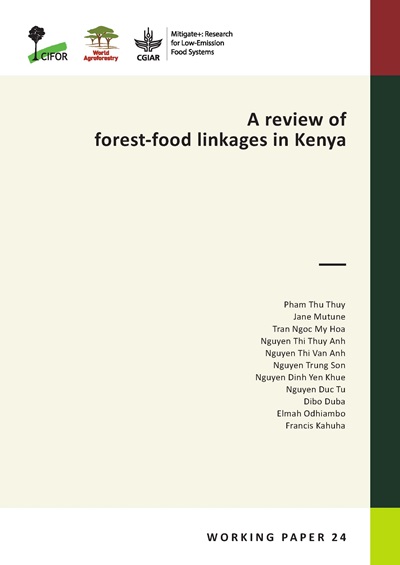A review of forest-food linkages in Kenya
Abstract
This working paper was developed based on a policy and literature review to take stock of the latest information on forest-food linkages in Kenya. Our review shows Kenya’s forests play important roles in providing food directly to local communities, as well as requisite conditions for sustainable food production systems in the country. Food-forest linkages are widely articulated in different policies issued by the Government of Kenya that draw on the principle of producing food without destroying forests. Different cross-sectoral bodies have been established to foster holistic food-forest solutions. The government expects forest protection and conservation policies to provide appropriate incentives and support for local food production and needs. Numerous academic publications have analysed the roles forests play in providing food, ensuring food security and supporting national development in Kenya. Despite the availability of scientific evidence on food-forest linkages, and policies and institutions being in place, translating policies into practice has been ineffective as forest loss continues to result in high-emission food systems. Complex drivers of deforestation and forest degradation in Kenya include weak governance; population growth; forest conversion for agriculture production; insecure tenure; and a lack of finance. Our review highlights the need to address these drivers by implementing current policies more effectively. Assessing how effective current policies are for addressing deforestation and forest degradation, and for low-emission food systems, will require further research across the country and should become a future research priority in Kenya.

